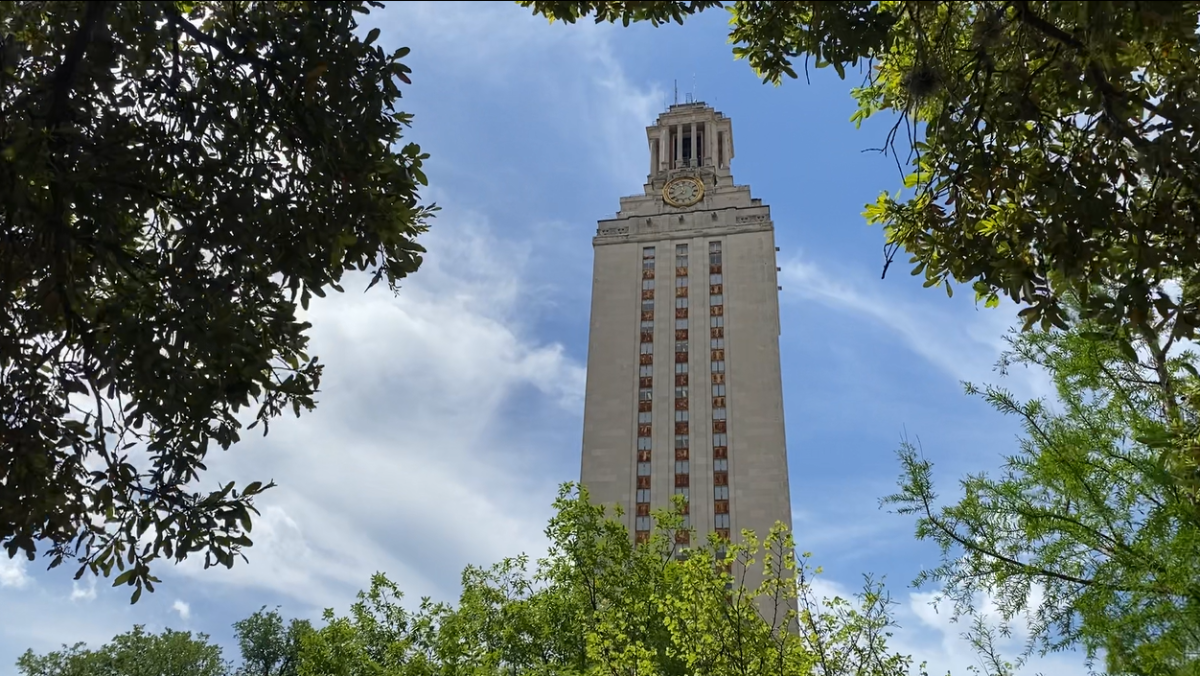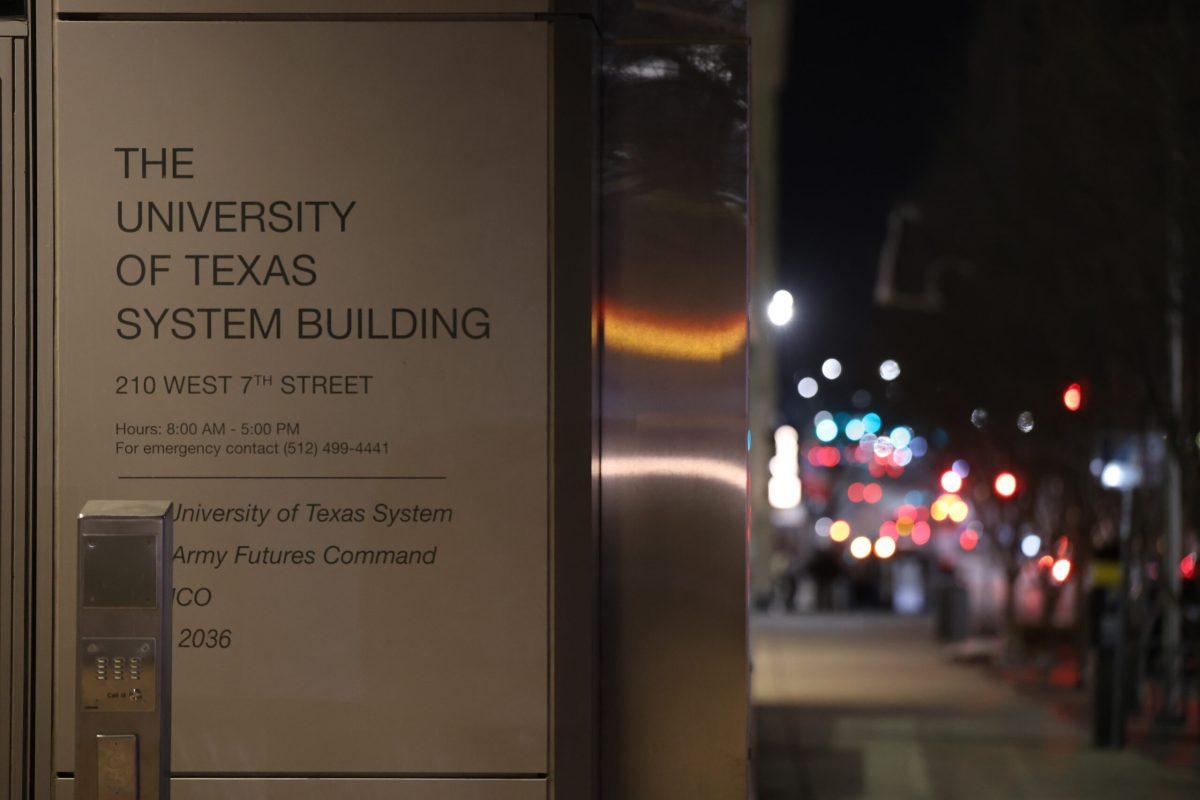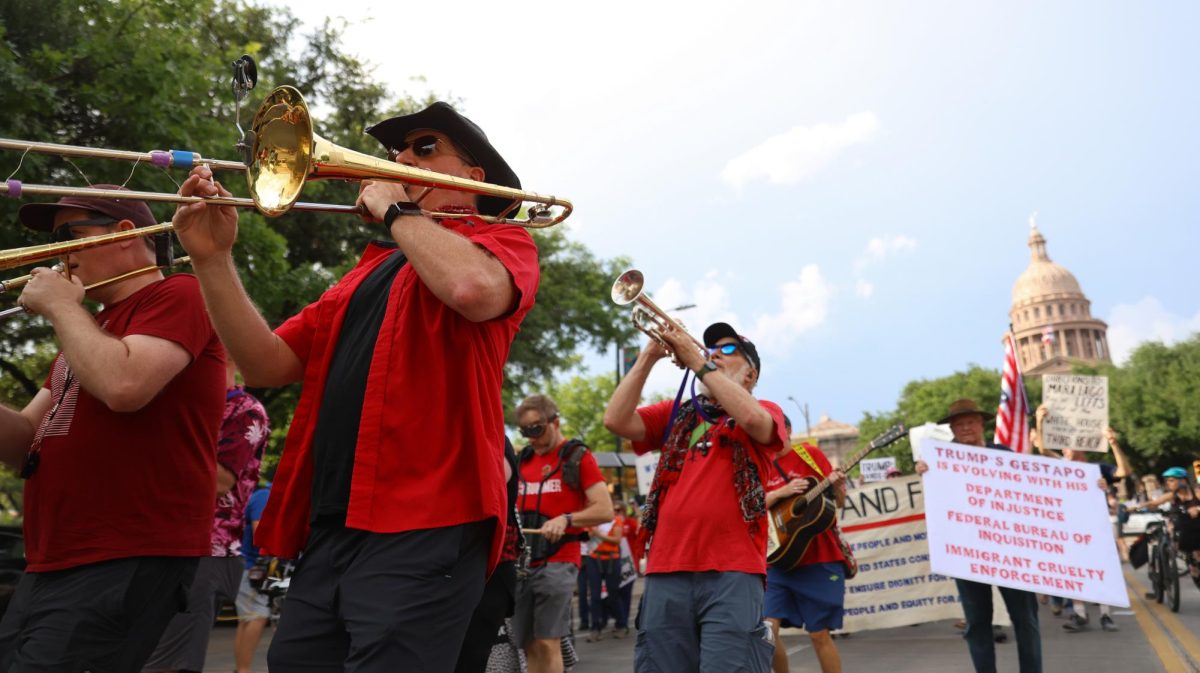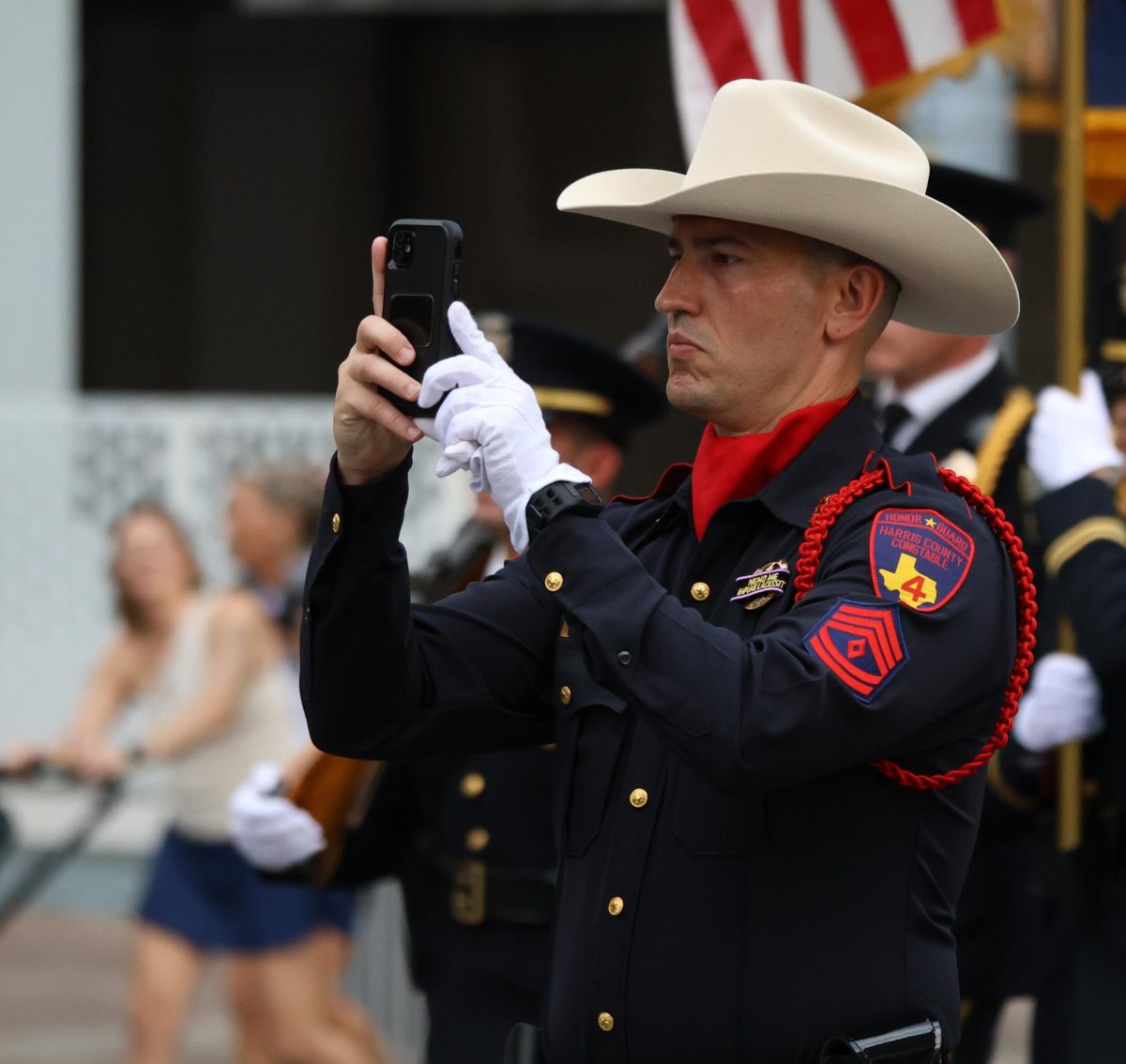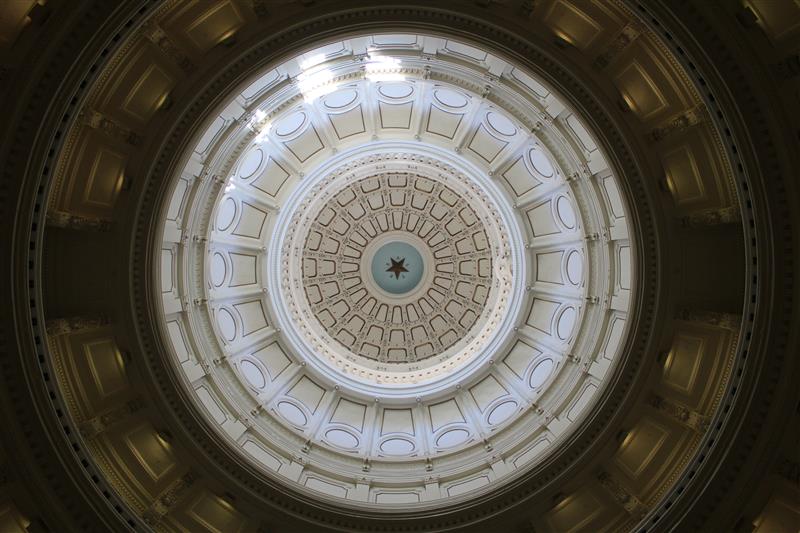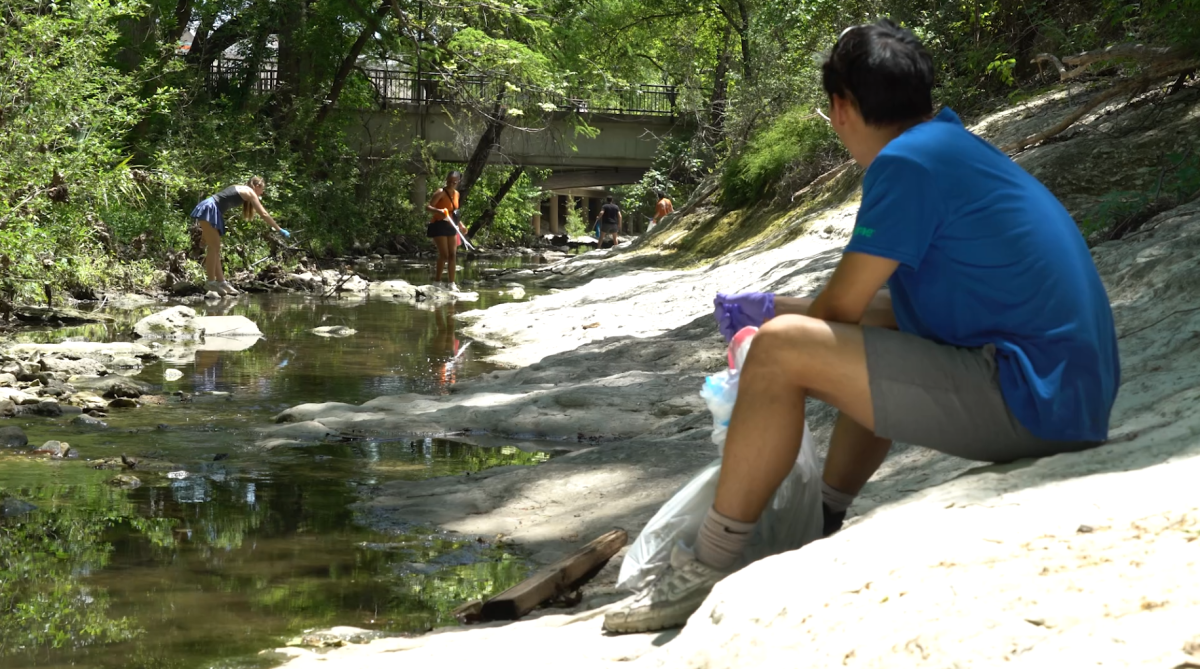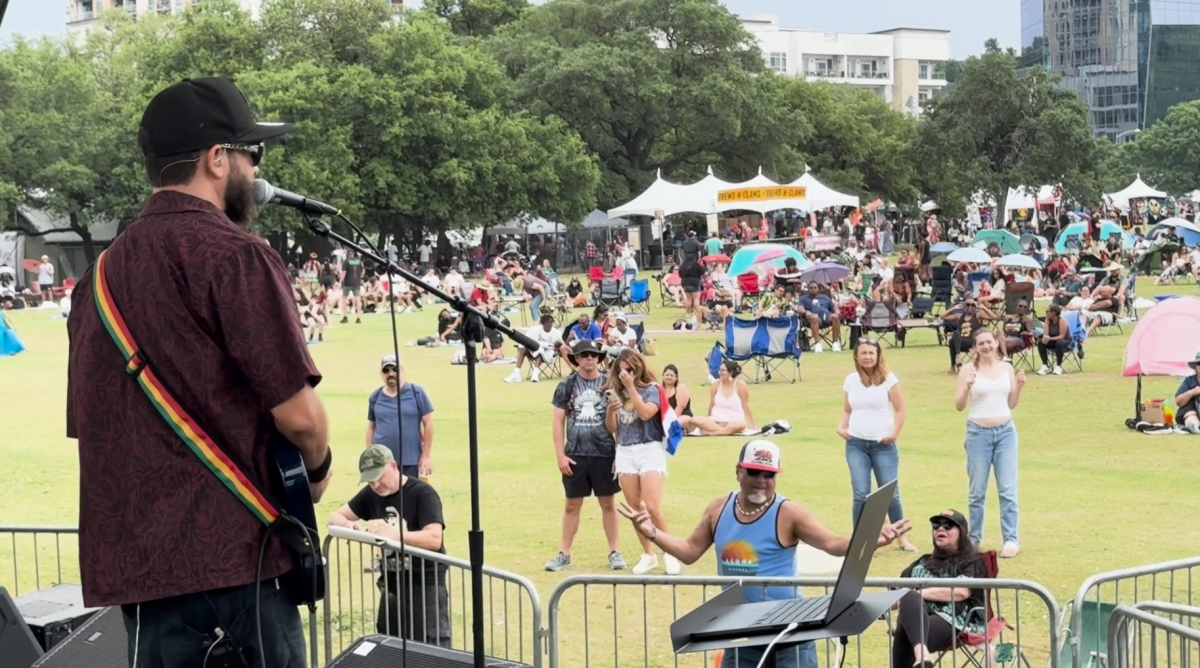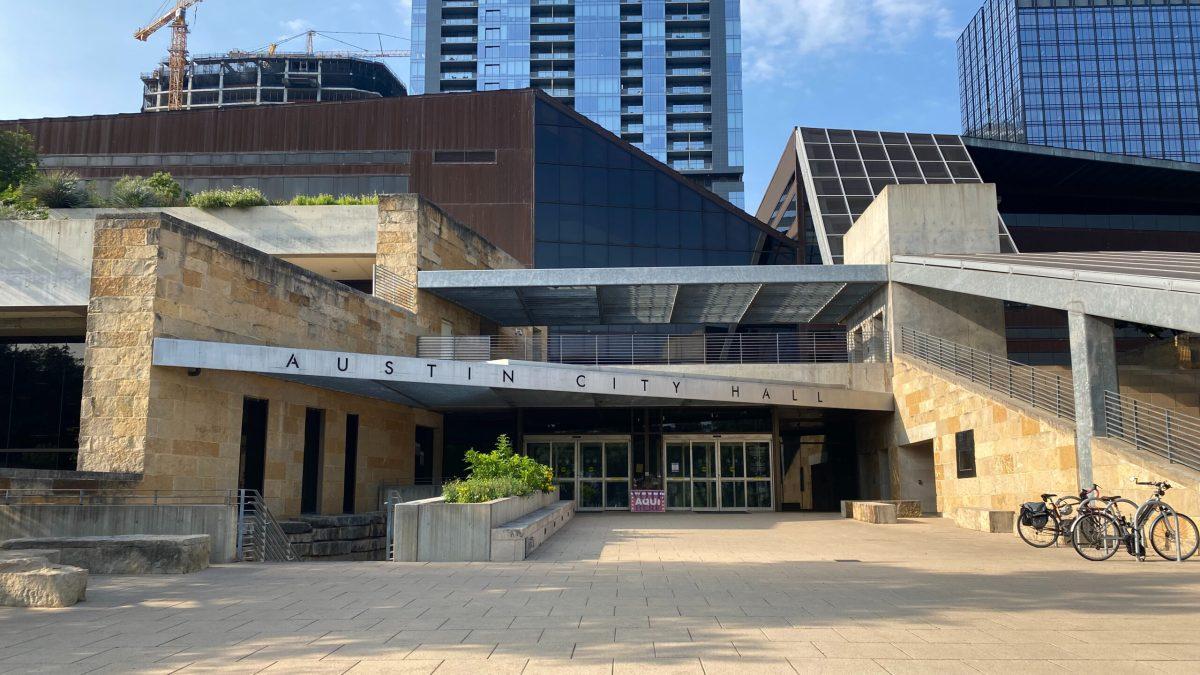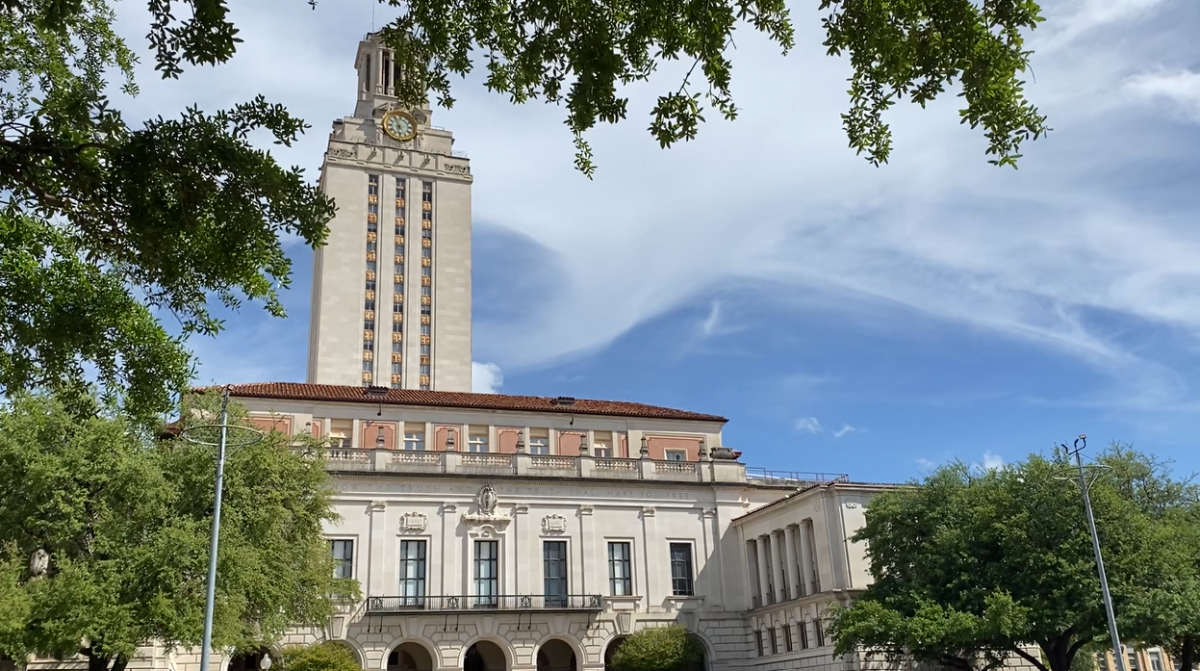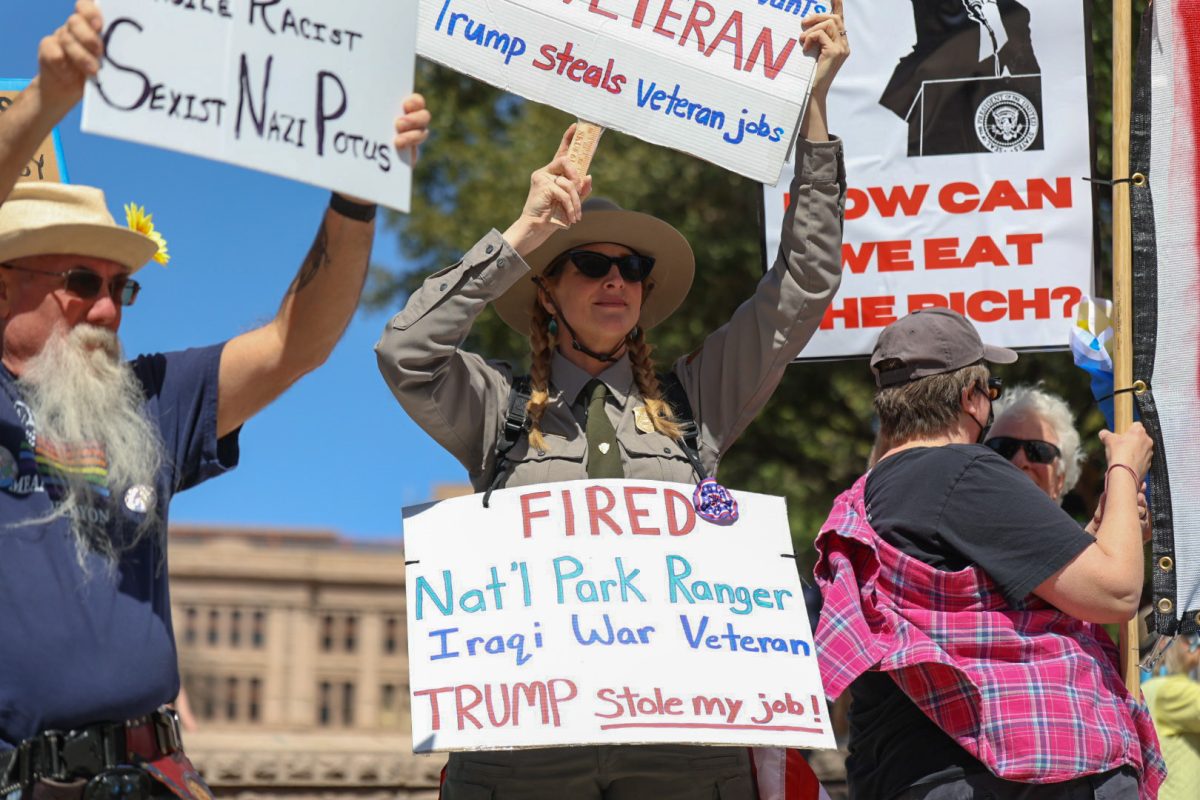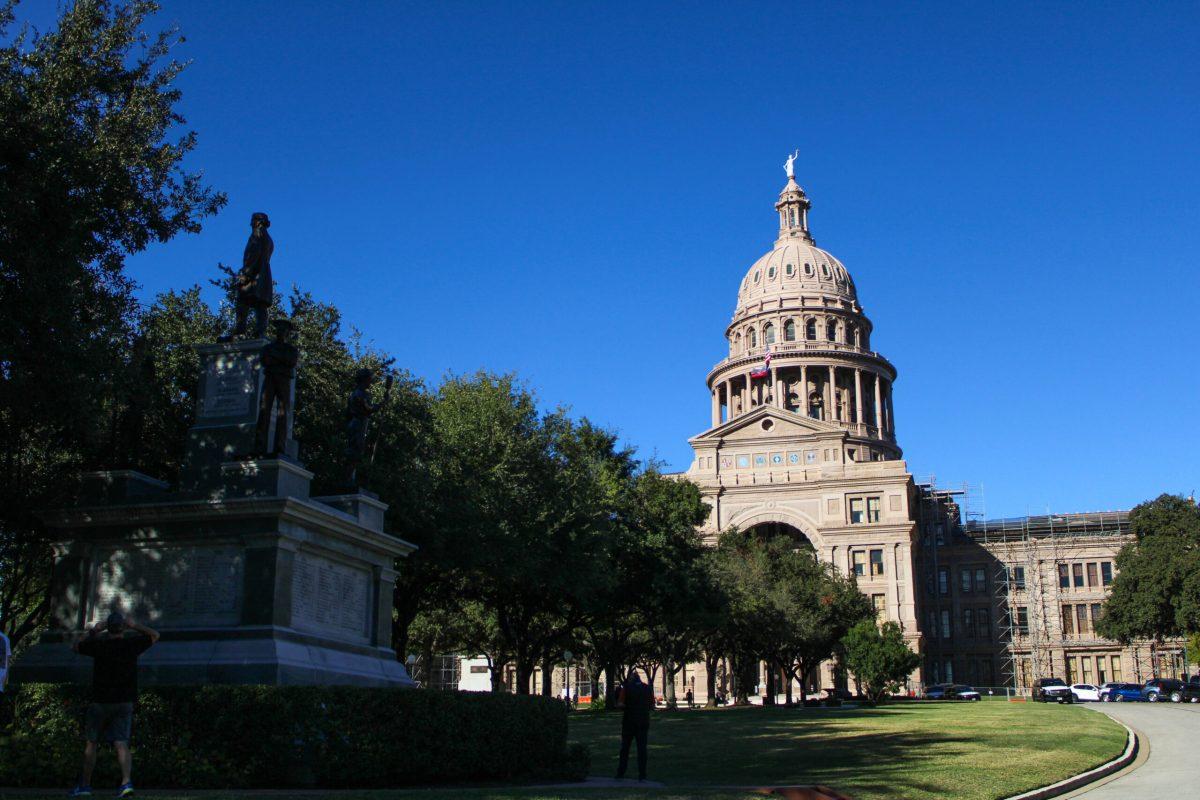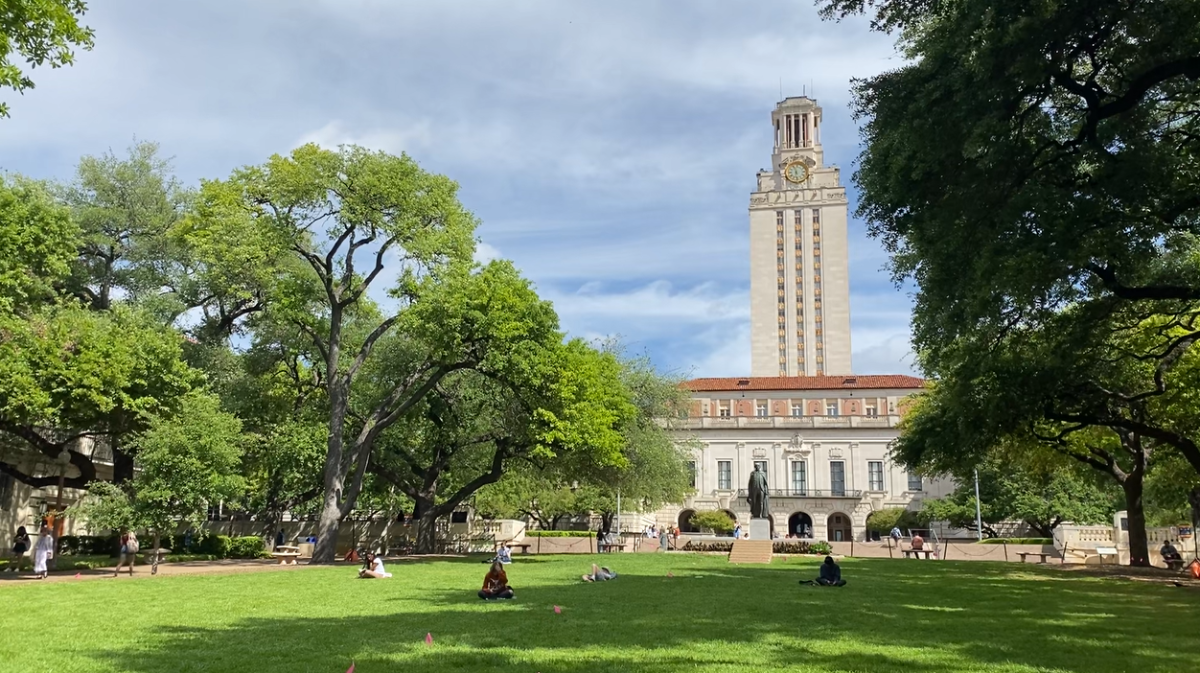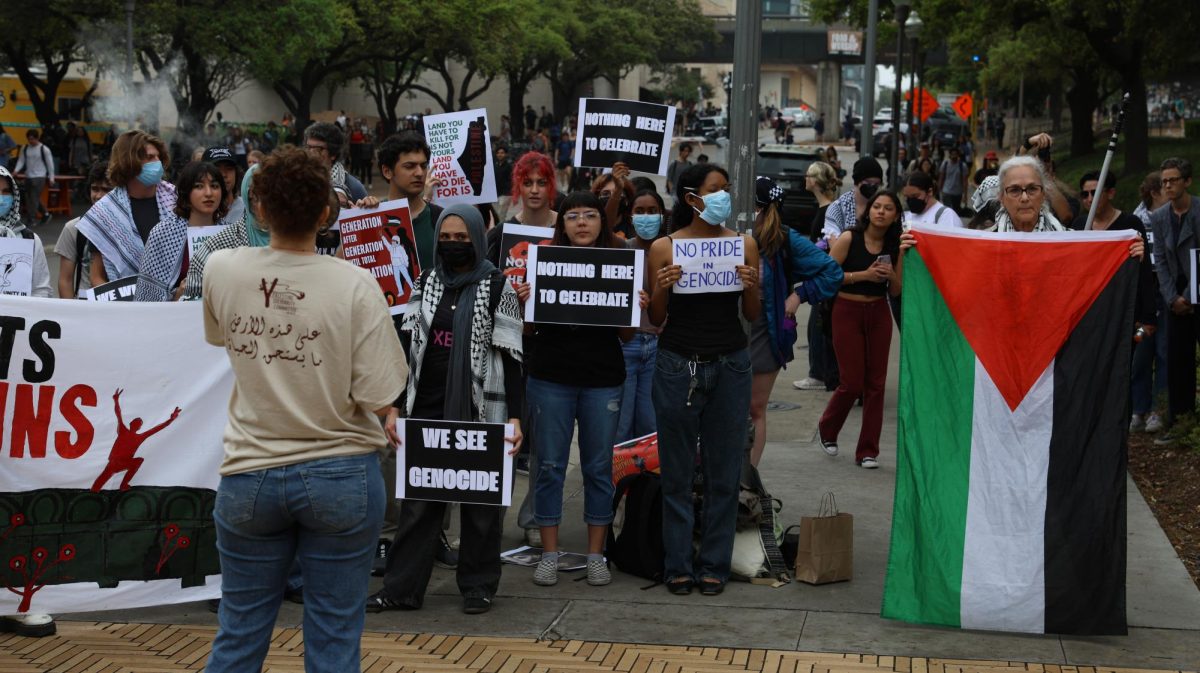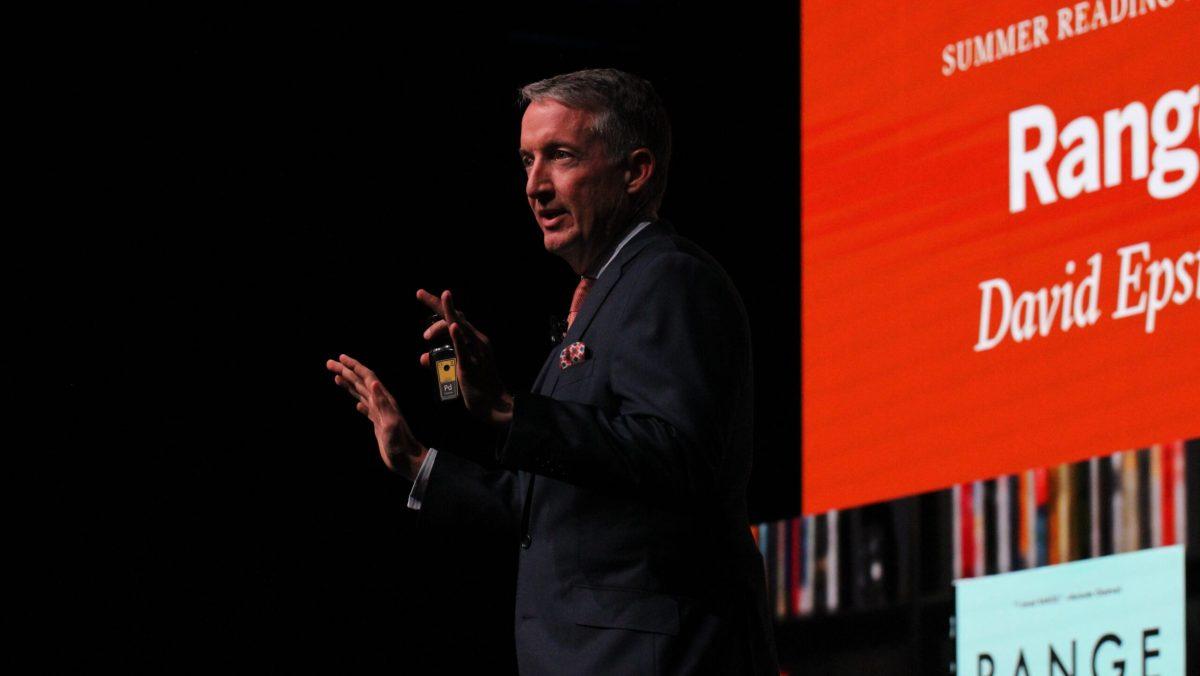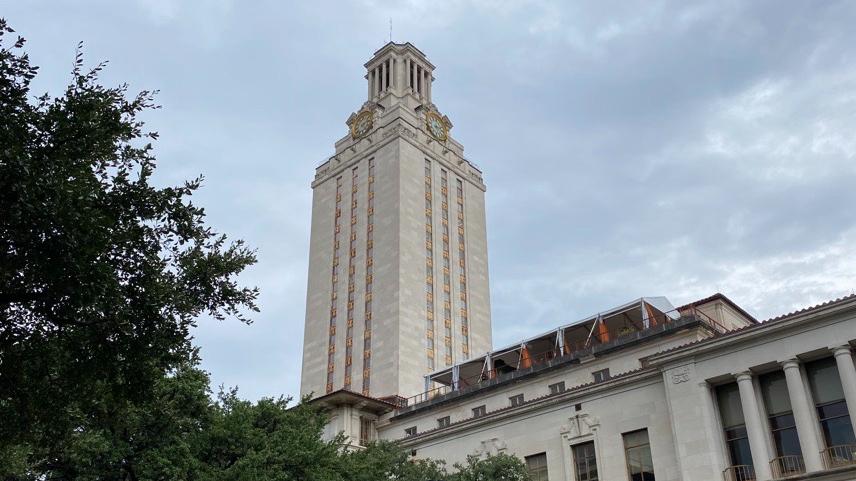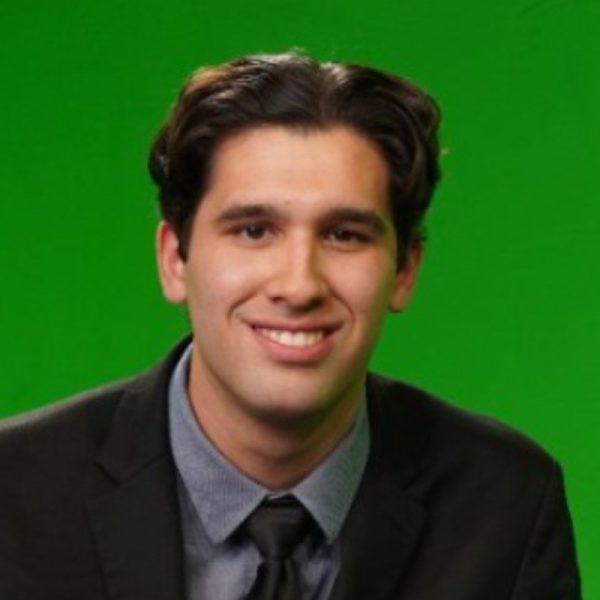Candidates presented their platforms at the Student Government executive alliance debate in the William C. Powers, Jr. Student Activity Center Monday.
Twelve students across six alliances presented their platforms for the positions of student body president and vice president for the 2025-2026 school year.
Candidates campaigned on a variety of topics including the Student Government budget, communication between students and Student Government and, combating food insecurity, as well as plans to improve mental health support and resources from the university among other issues.
The alliances running in order of when the candidates filed are presidential candidate Grayson Oliver with vice presidential candidate Elizabeth Tomoloju, presidential candidate JD Romero with Erin McCormick, presidential candidate Jonathan Wilson with Morgan Marie Hernandez, presidential candidate Amy DonJuan with Christopher Zapata, presidential candidate Hudson Thomas with Thierry Chu and presidential candidate Amin Mashhoon with Ava Hosseini.
Questions prepared by The Daily Texan editorial board were posed to all alliances before moderators asked questions submitted by audience members.
Transparency
Mashhoon and Hosseini said if elected as executive alliance, they would make themselves more available to students by continuing to table on campus as well as providing easily accessible phone numbers and emails to students. Wilson and Hernandez echoed the sentiment of making Student Government more available to students via more direct lines of communication. Thomas and Chu additionally said that communication from Student Government can be improved upon.
“We’ve realized a majority of students have no idea what (Student Government) does,” Thomas said. “I was my high school student body president, and we were able to basically go from relatively unknown to setting school records and creating lots of fundraisers and a bunch of cool opportunities.”
Oliver and Tomoloju said they would create a legislation tracker so students can better understand what bills student leaders are working on. A legislation tracker is currently linked on Student Government’s website, but is out of date.
Oliver and Tomoloju added it would be beneficial to create spaces where students could share concerns with student leaders as well as university administration.
Romero and McCormick said they hope to make Student Government’s role in the university more clear by fostering relationships between students, faculty and student organizations, as well as holding town halls and utilizing the existinga Student Government newsletter. DonJuan and Zapata said their alliance would also strive to make connections with student organizations and hold conversations with groups outside Student Government.
Financial plan
Thomas and Chu proposed limiting the budget for Student Government agencies to around $1,000 each to allow more funding for student organizations. They added an exception would be made for the Disabilities Inclusion Agency.
Mashhoon and Hosseini said they would reallocate existing funding if elected but were not clear on how they would do so.
Wilson and Hernandez said that existing funds could be used more effectively in supporting students.
“We want to grant access to certain free resources for all students,” Wilson said. “Art materials or architectural materials or things like Adobe (subscriptions) — we want to do that campus-wide.”
Oliver and Tomoloju proposed allocating more funding towards campus advocacy groups whose funding may have been impacted by Senate Bill 17, which banned diversity, equity and inclusion offices on college campuses last legislative session. Romero and McCormick shared the same sentiment.
DonJuan and Zapata said if elected, they would allocate more Student Government funds towards partnering with student organizations to fight food insecurity.
Combating food insecurity
Mashhoon and Hosseini said if elected, they would partner with local organizations such as West Campus Collective, ATX Free Fridges project and UT Farmstand. Hudson and Chu, Oliver and Tomoloju, and DonJuan and Zapata said they would also look into making such partnerships.
DonJuan added there are likely many other organizations battling food insecurity that Student Government is not aware of and promised to form connections with these groups as well.
“There are so many other organizations that students don’t even know about,” DonJuan said. “We believe that we should be those active leaders taking that step and going out to student organizations and reaching out to them and collaborating with them.”
Oliver and Tomoloju also proposed creating a program they call “Bevo Bites,” which would alert students when leftover food is available to take from event venues.
Wilson and Hernandez said they hope to pass legislation granting free meal plans to students in need. Romero and McCormick said they plan to reallocate Student Government funding to increase the budget of the Food Security Agency.
Improving mental health resources
Mashhoon and Hosseini said Student Government needs to focus on creating a campus-wide sense of community. They added that students need to be made to feel safe and have their voices heard, especially given the presence of law enforcement on campus in response to campus protests.
Oliver and Tomoloju said if elected, they would increase access and reduce wait times at the Counseling and Mental Health Center. Wilson and Hernandez and Romero and McCormick said the same, adding that they would also like to see improvements made to long-term support offered by CMHC.
Thomas and Chu proposed creating a campus mental health week as well as a “Mental Health Passport,” which would encourage students to eat healthy and have conversations around topics such as mental health.
DonJuan and Zapata said if elected, they would create an initiative allowing students to visit with campus dietitians through nutrition workshops as well as creating an allowance for students to access nutritious food.
Role of Student Government
Mashhoon and Hosseini said Student Government’s role is giving a voice to those who may not have one. Mashhoon criticized Student Government for staying silent in the wake of the pro-Palestinian protests in April 2024, where over 100 protesters, some non-students, were arrested.
“I heard nothing from Student Government,” Mashhoon said. “Regardless of the political affiliations, Student Government’s job is to be involved in the affairs of the students and every student, regardless of how they feel about it, regardless of who they are.”
In response, Romero said he helped Student Government draft a statement regarding the protests and subsequent arrests but was prevented from releasing the statement. He did not specify who prevented the statement from being circulated.
He and McCormick said if elected, they would consider restructuring Student Government’s relationship with the Office of the Dean of Students to allow Student Government to better advocate for students.
“(The university) is there to enable us and make us a better organization. They’re not there to withhold us from making a difference for our students,” Romero said.
DonJuan and Zapata and Wilson and Hernandez all said Student Government’s role is being available and actively speaking with the student body.
Thomas and Chu said Student Government’s role is fostering connections between campus organizations and seeking out diverse perspectives from a variety of campus groups. Oliver and Tomoloju echoed this sentiment, adding that Student Government also exists to hold the university accountable.
“As a representative for students, we do have to work with administration. But that doesn’t mean that we can’t critique administration,” Tomoloju said. “Administration is supposed to protect students, make them feel safe and seen. If they’re not doing that, that is our job to create those dialogues and create space for us to advocate for students.”
Voting in the Campus-Wide Elections will take place from 8 a.m. Monday, March 3, to 5 p.m. Tuesday, March 4.
Election results will be released Monday, March 10.

